The university is showcasing its entrepreneurial talent with five finalists being named in the 11th annual KiwiNet Research Commercialisation Awards.
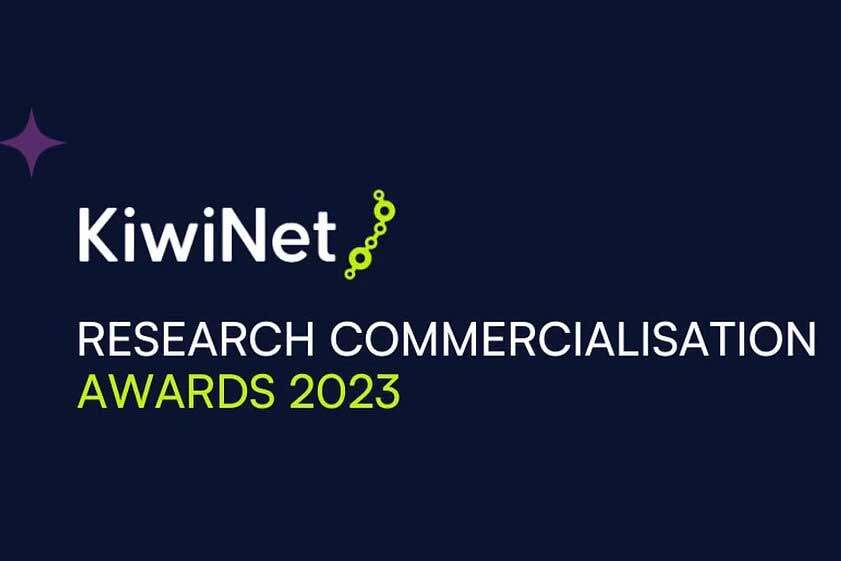

The Awards celebrate the scientific discoveries being successfully commercialised within Aotearoa New Zealand’s universities and Crown Research Institutes, and their impact on New Zealand and beyond. This year, the KiwiNet Awards recognise 18 finalists across six categories, whose passion and energy see them transforming their research into innovative new technologies and businesses.
Massey has a record five finalists across four award categories. Students Lucy Grunfeld and Sophie Burling are both finalists in the Momentum Student Entrepreneur category, while Riddet Institute Director Distinguished Professor Harjinder Singh is a finalist in the BNZ Researcher Entrepreneur category.
A ground-breaking treatment for Strawberry Birthmarks, developed by researchers at Gillies McIndoe Research Institute and Massey Ventures, and licensed to AFT Pharmaceuticals, is a finalist in the PwC Breakthrough Project category.
Finally, Massey Ventures Commercialisation Manger Dr Sean Mackay is a finalist in the Simpson Grierson Commercialisation Professional category.
Massey Ventures Commercialisation Director Dr Dan Carlisle says making the finals is an achievement on its own.
“Having five finalists is truly an outstanding outcome. It really speaks to the quality of the research going on at Massey University and the dedication of researchers and students to see their technologies make an impact on the world.”
Award winners will be announced at an event on 28 September in Auckland.
Momentum Student Entrepreneur finalists
Lucy Grunfeld – supporting breast cancer surgery recovery
Like many outstanding innovations, Lucy’s came from a heartfelt desire to alleviate a loved one’s distress.
In 2016, Lucy’s godmother underwent a breast cancer procedure. This significant event deeply impacted her journey as an industrial designer and would later inspire her to pursue entrepreneurship to make a difference in the lives of others.
Witnessing the challenges her godmother faced during her breast cancer journey, Lucy was particularly struck by the emotional and physical discomfort of the post-operative bra her godmother was required to wear for a year after her procedure. Her godmother described it as ugly and uncomfortable and said that it made her feel terrible during a time when she needed comfort and support the most.
This provided the impetus for Bra+ve (Bra Positive), a post-operative bra to alleviate the physical discomfort and emotional distress experienced by women recovering from breast cancer surgery.
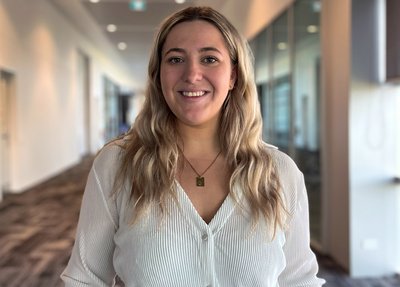

Bra+ve is crafted using sustainable, antimicrobial materials using innovative 3D knit technology. The addition of magnetic fasteners enhances independence and makes it easier to use, especially for those with limited hand mobility. The unique crossover shape allows each cup size to be controlled separately, accommodating uneven breast tissue post-surgery.
Bra+ve shows strong commercial potential through its extensive engagement with the target market and medical professionals. Through surveys, interviews and focus groups, this project connected with over 140 patients, eight healthcare specialists and four lingerie designers, and ensured that the post-operative bra met the specific needs of its users, built up a community around the product and answered a unique market need.
New Zealand has one of the highest breast cancer incidences worldwide and currently post-operative bras are imported from overseas suppliers, which can cause long wait times. The country would benefit from a product designed by a local foundation.
Sophie Burling – Transforming drug discovery for neuromuscular disorders
Sophie is currently completing a PhD in biochemistry, specialising in tissue engineering stem cell-derived models of neuromuscular disease for use in diagnostics and drug discovery.
Her undergraduate background is in cell biology, genetics and business law. In 2022, Sophie spent six months at Massachusetts Institute of Technology as a visiting Fulbright scholar, working to generate multicellular stem cell-derived brain and gut-brain axis models for investigating Alzheimer’s and Parkinson’s disease.
Sophie is also Research Lead at Project Geminae. Project Geminae proposes the continued development of a microfluidic ‘organ chip’ drug – a discovery platform that emulates the human motor system of healthy and diseased people.
Currently, Neuromuscular Disorders (NMDs) are debilitating, complex diseases that lack effective treatment options. NMDs are among the most physically devastating in their clinical presentation, placing immeasurable emotional and financial burdens on families and the healthcare system. New Zealand has the world’s highest incidence rate. Most people die within three years of diagnosis and current therapies only extend life expectancy by one to six months.
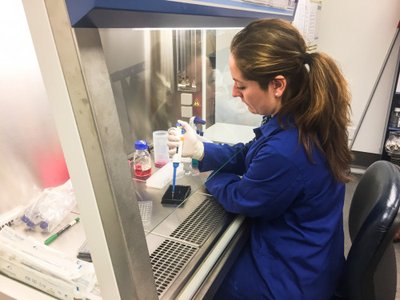

Not only is the disorder a considerable challenge, but so is the testing of novel drugs that could treat this disorder. Project Geminae aims to drastically reduce that time by introducing deep tech that emulates the entire human body, completely transforming the drug discovery process.
Sophie has embraced the entrepreneurial spirit of driving research to commercialisation and continuously supporting people, whether they be other disruptors and groundbreakers or the patients themselves. Sophie is also the Chair of the Manawatū Momentum Investment Committee.
BNZ Researcher Entrepreneur finalist
Distinguished Professor Harjinder Singh – Riddet Institute
The inventor behind many of Massey’s largest commercial deals and a 2012 Prime Minister’s Science Prize recipient, Distinguished Professor Harjinder Singh has built an extensive track record as a world-renowned food scientist and researcher/entrepreneur.
Across his distinguished career, Professor Singh has worked with many of the world’s global food giants, including Danone, Fonterra, Pepsico, Goodman Fielder and Nestlé. His early research on milk proteins led to patented innovations, which were commercialised by Fonterra Co-operative Limited. His invention of a patented encapsulation technology for fish oils became the basis for the Riddet Institute’s spin-out company Speirs Nutritionals Limited.
Professor Singh was a key inventor behind the FERRI-PRO technology, acquired by Nestlé in 2018 to fight global iron deficiency. This remains the university’s single biggest deal, both in terms of commercial impact and societal benefits. The first FERRI-PRO product was recently launched in Pakistan where one in two children are iron deficient.
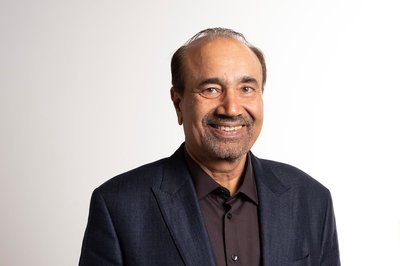

With an impressive 25 patents to his name, eight of which have been commercialised, plus several new projects in the pipeline, Professor Singh also gives much back to the next generation of researcher entrepreneurs. With a growing entrepreneurial culture around commercialisation, he is excited by the life-changing opportunities for the young scientists he gets to train and mentor.
Simpson Grierson Commercialisation Professional finalist
Dr Sean Mackay – Breaking the commercialisation professional mould
Dr Sean Mackay represents a new generation of commercialisation professional, blending his roles as a scientist, inventor, commercialisation manager and founder. Starting out as an inventor of several deep-tech opportunities, Dr Mackay now works for Massey Ventures in a Senior Commercialisation Manager role that utilises his unique skillsets.
He is responsible for a pipeline of commercial opportunities at Massey University, including many where he acts as a principal investigator, inventor and/or founder. In under three years, Dr Mackay has helped raise around $3 million, supported four spinouts and two licenses. These include Ampersand Technologies, Retrabac Therapeutics, Nanophage Technologies, Captivate Technology and Strawberry Birthmarks.
He is also responsible for facilitating the university’s first iwi investment, generating a healthy pipeline of commercial opportunities and supporting the introduction of a flexible benefit-share model for founders and a new Student IP policy.
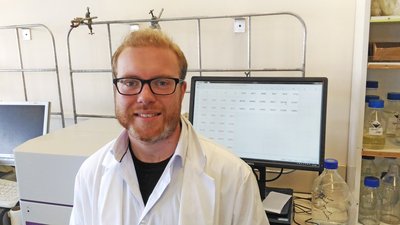

Dr Mackay has actively sought new opportunities to advance his skills, such as participating in KiwiNet’s Emerging Innovator Programme and moulding his career to suit his strengths, creating the best outcomes for his organisation and team. He is leading the way for a new generation of researcher entrepreneurs and commercialisation professionals.
PwC Breakthrough Project
Strawberry Birthmarks – A game-changing treatment for infants
Strawberry birthmarks are benign vascular tumours that affect one in 10 children. Fifteen per cent of cases require treatment during infancy to stop disfigurement or the threat to bodily function, and sometimes life. Due to potential drug-related side effects, up to 85 per cent of infants are left untreated and may become disfigured.
Researchers at Gillies McIndoe Research Institute and Massey Ventures are developing a topical treatment for strawberry birthmarks that will be more accessible, allowing treatment of more affected children whilst also reducing drug-related side effects. Massey Ventures led the commercialisation of the treatment in a niche market, worth an estimated $750 million annually in the US, Europe and China.
In 2022, Massey Ventures announced an agreement with AFT Pharmaceuticals and the Gillies McIndoe Research Institute to license the intellectual property, with plans to launch the treatment in over 100 countries. AFT Pharmaceuticals will be responsible for the pre-clinical and clinical development and global regulatory and commercialisation of the product.
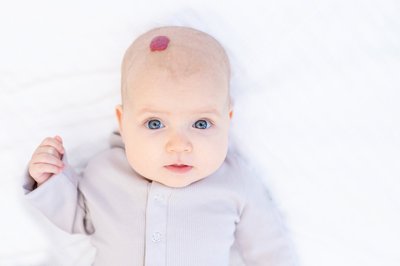

It took just six weeks for the team to arrive at a mutually beneficial deal. The agreement is a prime example of a homegrown technology retaining its IP in New Zealand and creating significant potential export value, all while providing a life-changing medical treatment.
As the first pharmaceutical deal in Massey Ventures’ history, the agreement with Gillies McIndoe Research Institute and AFT Pharmaceuticals has now unlocked significant networks, skills, resources and global reach to unleash a life-changing drug with global potential.







































